Meet the Experts
Learn more about the farmers, scientists and chefs who are creating and innovating marine aquaculture's future to support healthy ocean ecosystems and people.
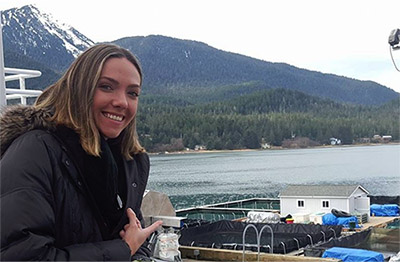
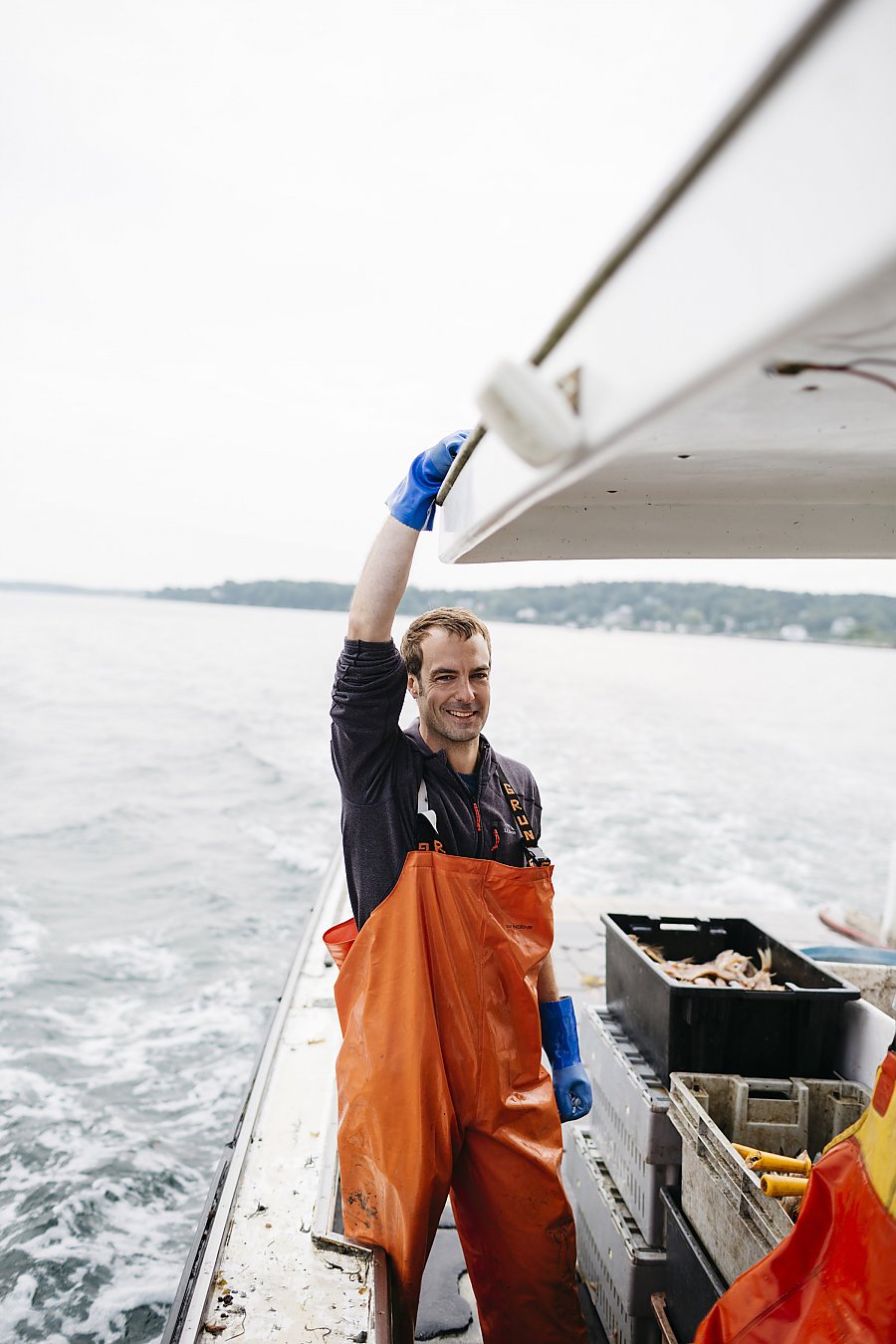
Series Narrator/Host
Chef Barton Seaver - Chef, Author, and Founder Coastal Culinary Academy
“Farmed seafood is an essential part of healthy diets and a healthy planet. Participating in the resilience of our communities and ecosystems is as easy as cooking delicious seafood at home.”
Barton Seaver is the founder and chief education officer at the Coastal Culinary Academy. His work as a chef, sustainability advocate, public health educator, and prolific writer has given him technical expertise in all aspects of seafood production. His experience has also helped him develop personal relationships within the industry and allowed him to acquire systemic knowledge of all of the processes by which a fish in water becomes seafood on a plate. Seaver is an internationally recognized speaker on the topic of seafood and the author of seven books. His most recent book, American Seafood: Heritage, Culture & Cookery from Sea to Shining Sea, is a guide to more than 500 species and a history of one of our country’s iconic industries.
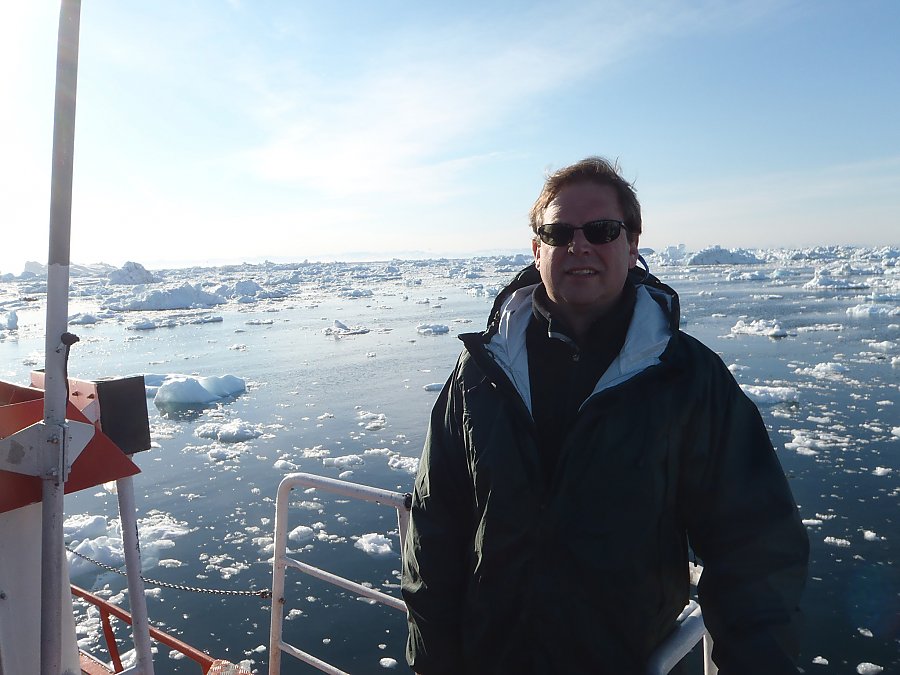
Credit: Maine Aquaculture Association
Sebastian Belle - Maine Aquaculture Association
“Developing sustainable farming methods to enable aquaculture to produce healthy, ecologically responsible food is vital if we are going to meet the coming challenge of feeding the world. As farmers our relationship to the environment is central to our existence. It drives our economic results and determines whether our children will be able to farm in the future.”
Sebastian Belle began his career as a commercial fisherman, working his way through university as a mate on offshore lobster boats. Currently Belle is the executive director of the Maine Aquaculture Association (MAA), a private non-profit association representing Maine shellfish and finfish growers. Prior to joining the MAA, Belle was the state aquaculture coordinator, working for the Maine Department of Marine Resources. In addition to his role as MAA executive director, Belle is president of Econ-Aqua and a founding partner of TAAG. Econ-Aqua is consulting firm specializing in farm management, financial due diligence, and risk analysis and control. TAAG is an international consulting and investment firm specializing in aquaculture projects. Belle’s past positions include project manager of the Bluefin Tuna Project at the New England Aquarium in Boston and operations manager for Connors Aquaculture Inc. in Eastport, Maine, one of the largest Atlantic salmon farms in the United States. Belle holds degrees in fisheries biology and agricultural economics. He served as a technical consultant on more than twenty major commercial aquaculture ventures for investment groups from Europe and North and South America. He also spent four years managing a commercial scale aquaculture research and development foundation in Norway.
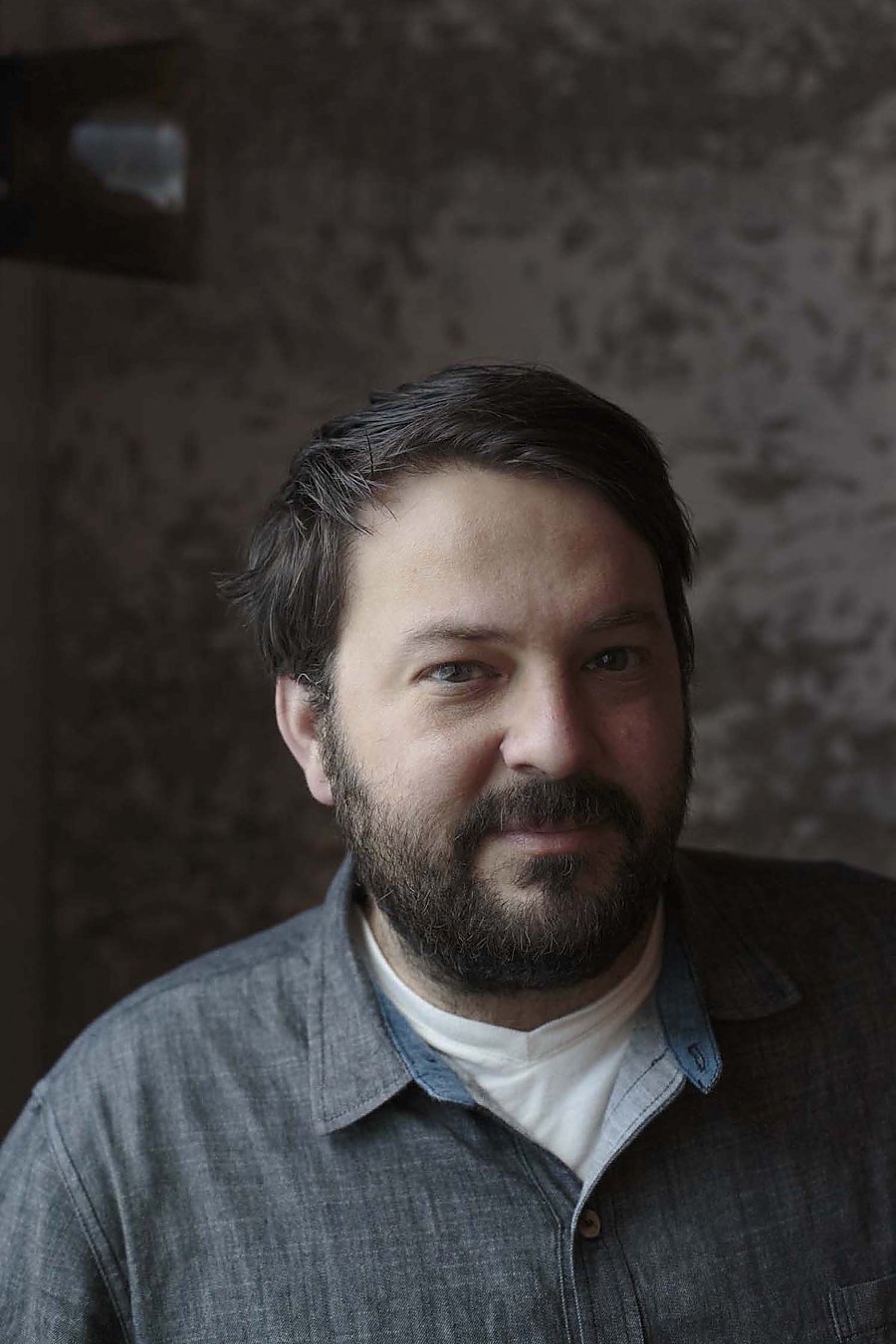
Chef Stuart Brioza - State Bird Provisions & The Progress
Stuart Brioza is the chef/owner of restaurants State Bird Provisions and The Progress in San Francisco and co-author of State Bird Provisions: A Cookbook. His first restaurant, State Bird Provisions, introduced a new way of thinking about dining and service, and The Progress, his sophmore project, opened to critical acclaim.
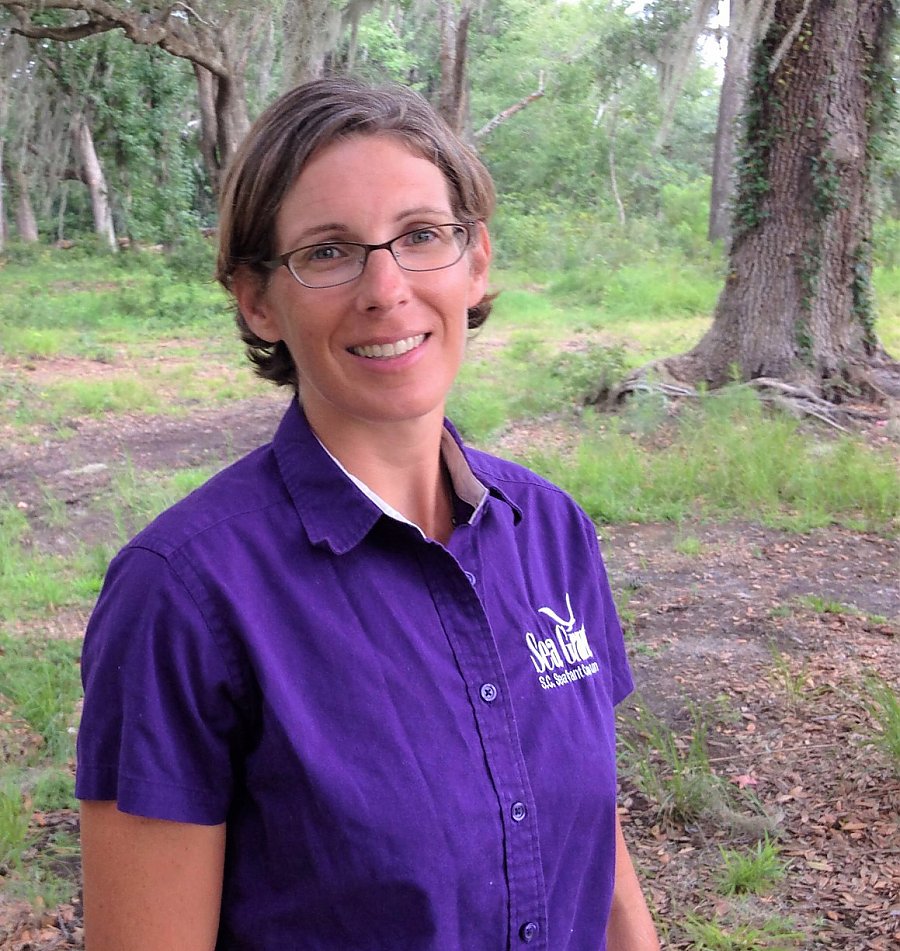
Credit: Julie Davis
Julie Davis - South Carolina Sea Grant Consortium
“Marine aquaculture is a responsible and sustainable way to meet the nation’s growing demand for seafood. It provides the opportunity to create a skilled workforce in rural coastal communities, which means mulit-generational seafood families don’t need to be a thing of the past.”
Julie Davis was born and raised in Nova Scotia, Canada, but now lives and works in Beaufort, South Carolina, as the South Carolina Sea Grant Consortium’s Living Marine Resources extension specialist. She works with commercial fishermen and shellfish farmers to help them improve the economic and environmental sustainability of their businesses. Davis’ background includes working on live-aboard dive boats, growing queen conch, researching baby spiny lobsters, and working as an environmental consultant. Her undergraduate degree is in marine biology from Dalhousie University, and she earned a master’s degree in fisheries and aquaculture from Auburn University, where she focused on oyster farming.
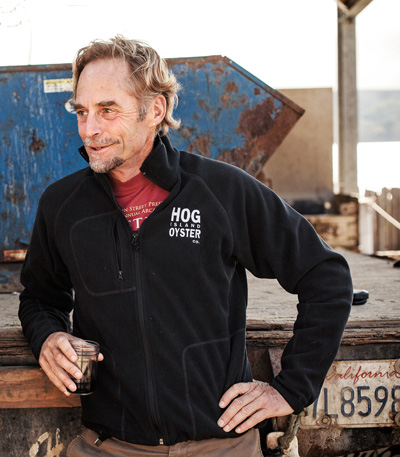
John Finger - Hog Island Oyster Company
John Finger was born and raised on the eastern end of Long Island, New York, an area steeped in seafood and shellfish history. He graduated from the Southampton College of Long Island University with a degree in marine biology. Today, Finger is co-founder, chief executive officer (CEO), and president of Hog Island Oyster Company. Hog Island Oyster Co. currently leases 160 acres in Tomales Bay, California, and sells over 5 million oysters per year. In 2014 Hog Island Oyster Co. launched the first permitted oyster hatchery in California in Humboldt Bay.

Halley Froehlich - University of California, Santa Barbara
“Marine aquaculture has a lot of potential to work with the natural environment to produce more food, and science has a critical role to play in that sustainable direction.”
Dr. Halley E. Froehlich is a postdoctoral scholar and primary researcher from the Science for Nature and People Partnership (SNAPP) Sustainable Open-Ocean Aquaculture Working Group at the National Center for Ecological Analysis and Synthesis (NCEAS), University of California, Santa Barbara. She is also the co-founder of the Conservation Aquaculture Research Team —an initiative motivated by the SNAPP research—aimed at building up the scientific foundation of ocean-based aquaculture knowledge for improved conservation and management, now and in the future. Dr. Froehlich is particularly interested in how to better align marine aquaculture with conservation efforts at multiple scales. Dr. Froehlich received her Ph.D. from the School of Aquatic and Fishery Sciences, University of Washington, and B.Sc. in animal biology from the University of California, Davis. As a National Science Foundation Graduate Research Fellow, she took an interdisciplinary approach, studying the effects of anthropogenic disturbances (e.g., hypoxia) on marine organisms and fisheries. A key facet of Dr. Froehlich’s graduate and postdoctoral research is linking important ecological questions with conservation and management objectives.
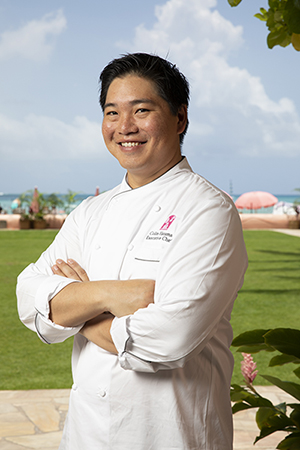
Chef Colin Hazama - The Royal Hawaiian
“Aquaculture is very important to me as a chef. I’ve grown up with the Pacific Ocean surrounding me and being able to have a sustainable source of fish and shellfish in Hawaii is what makes our culture and cuisine what it is today. The balance of wild and farmed seafood ensures that we have fish for the future. Aquaculture helps provide a sustainable resource that allows me to create healthy dishes for my customers, friends and family.”
Colin Hazama is the executive chef at The Royal Hawaiian in Honolulu, Hawaii. He created two (annual) culinary events, “Chef’s Table to Farm” at the Sheraton Waikiki, and “Fanta-Sea” at The Royal Hawaiian. During his free time, Hazama enjoys spear fishing, diving, and spending time with family and friends.
In January 2018 Hazama was named Chef/Restaurateur of the Year by the Hawaii Lodging & Tourism Association at its annual Na Po‘e Pa‘ahana Awards. In 2015, the year he was appointed executive chef at The Royal Hawaiian, Hazama was named one of Hawaii’s brightest young stars by Pacific Business News for its Forty Under 40 Class of 2015.
Prior to his appointment at The Royal Hawaiian, Hazama was a chef at the Sheraton Waikiki, first launching the RumFire restaurant, then most recently serving as the hotel’s senior executive sous chef. It was also during this time Hazama was featured at the James Beard House in New York City, after being named by the James Beard Foundation as a “Rising Star Chef” in 2010.
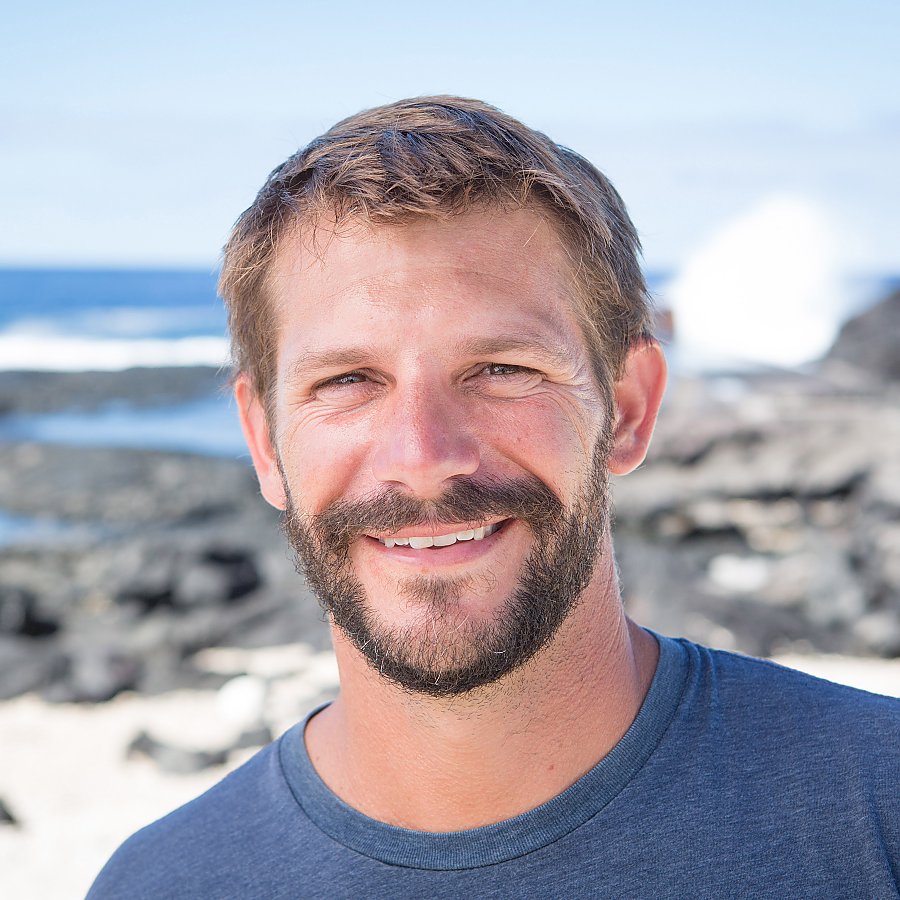
Credit: Blue Ocean Mariculture
Tyler Korte - Blue Ocean Mariculture
“As the world’s demand for seafood continues to grow, offshore mariculture has an enormous potential to fulfill that demand by providing healthy fish grown in balance with our ocean’s ecology.”
Tyler Korte is the offshore farm manager at Blue Ocean Mariculture LLC. Korte started his career as a marine ecologist working with various non-profit organizations, including the Monterey Bay Aquarium, Catalina Island Marine Institute, and the University of Hawaii, where he promoted ocean conservation through research and education. In 2008, Korte began working with commercial finfish producers focused on sustainable offshore farming. He has dedicated the last decade to helping develop environmentally responsible farming practices in the offshore waters of Panama and Hawaii. Korte has a degree in marine biology with a focus on coastal ecology from Brown University and has worked with the University of New South Wales, the University of Hawaii, and the University of Florida on coral ecology and invasive species assessment projects.
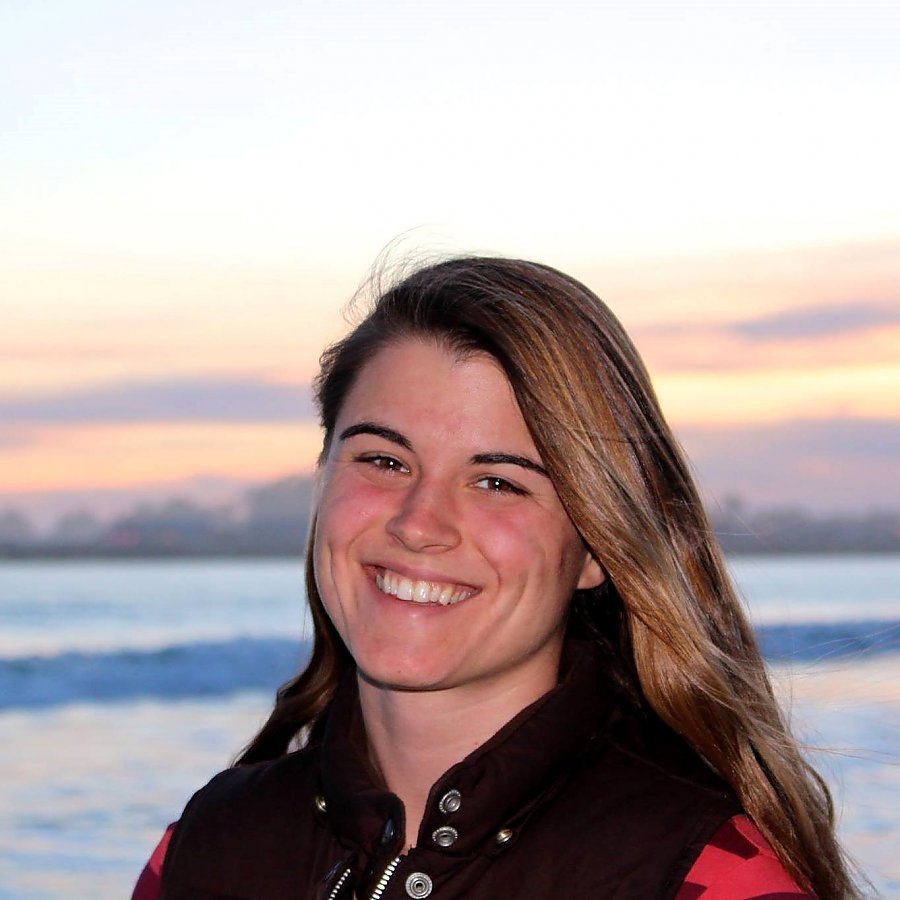
Sarah Lummis - University of California, Santa Cruz
“Working with Hog Island has allowed me to get insight into how eelgrass respond to aquaculture. With this information we can inform management in ways that maximize the potential of natural eelgrass ecosystems and working farms.”
Sarah Lummis’ childhood growing up in Bermuda inspired her love for the oceans and marine life and a desire to learn more about them. She graduated from Stanford University with bachelor’s and master’s degrees in biology. Lummis now works as a graduate student at the University of California, Santa Cruz, in the Kroeker Lab, which focuses on community ecology and coastal sustainability questions.
As a marine ecologist, she studies seagrass ecosystems and how the function and services of these ecosystems will be impacted by climate change and anthropogenic impacts to the coast. She has been working with Hog Island Oyster Company and The Nature Conservancy to understand how seagrass ecosystems respond to oyster aquaculture activities in Tomales Bay, with the goal of informing resource managers and stakeholders.
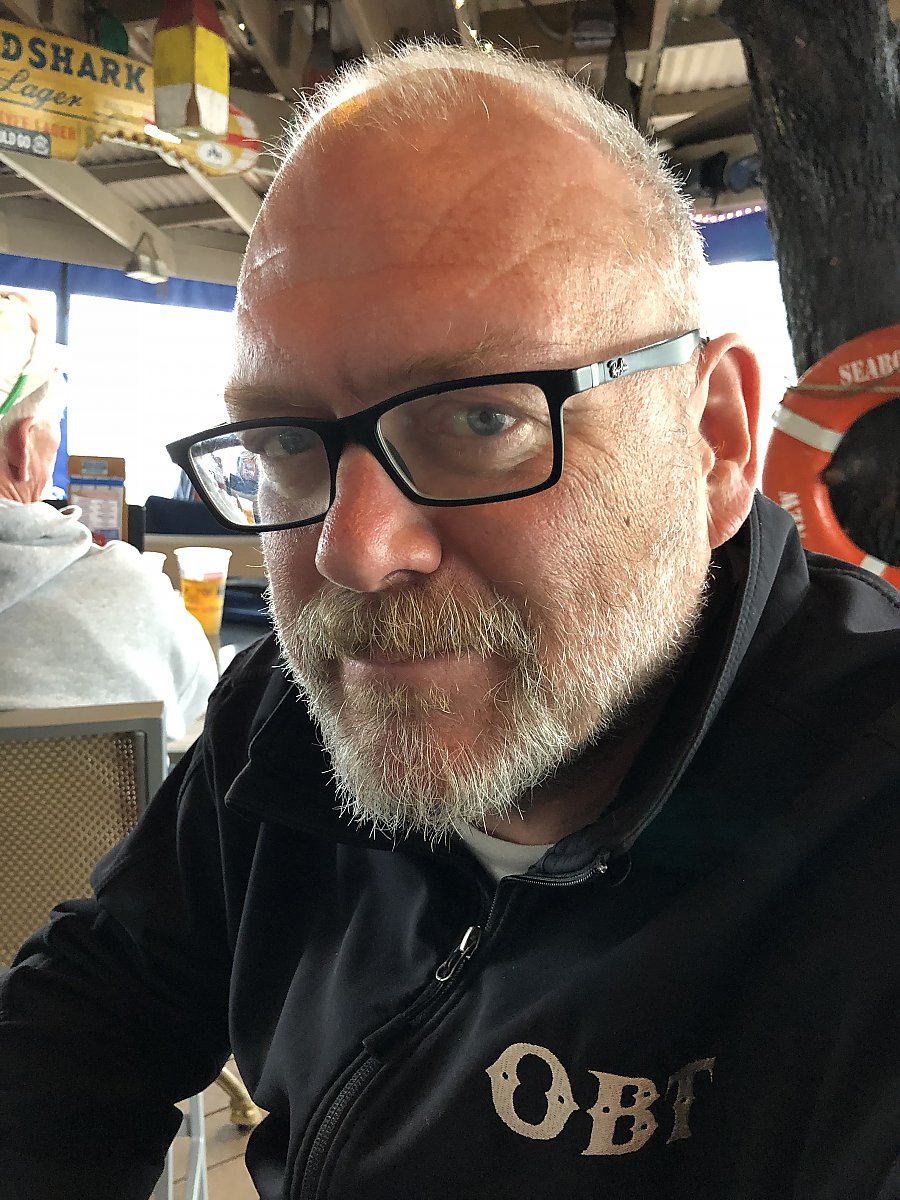
Credit: Old Bull Tavern
John Marshall - Old Bull Tavern
“Aquaculture and the health of the ecosystems supporting it will be one of the greatest legacies for generations to come.”
John Marshall is the chef and co-owner of the Old Bull Tavern in Beaufort, South Carolina.
A graduate of the Culinary Institute of America, Chef Marshall has lived and worked in numerous locations around the world. Chef Marshall now calls Beaufort his “home for good” and divides his time away from the restaurant between riding his Moto-Guzzi motorcycle and cruising the Sea Islands on his 23-foot fishing boat.
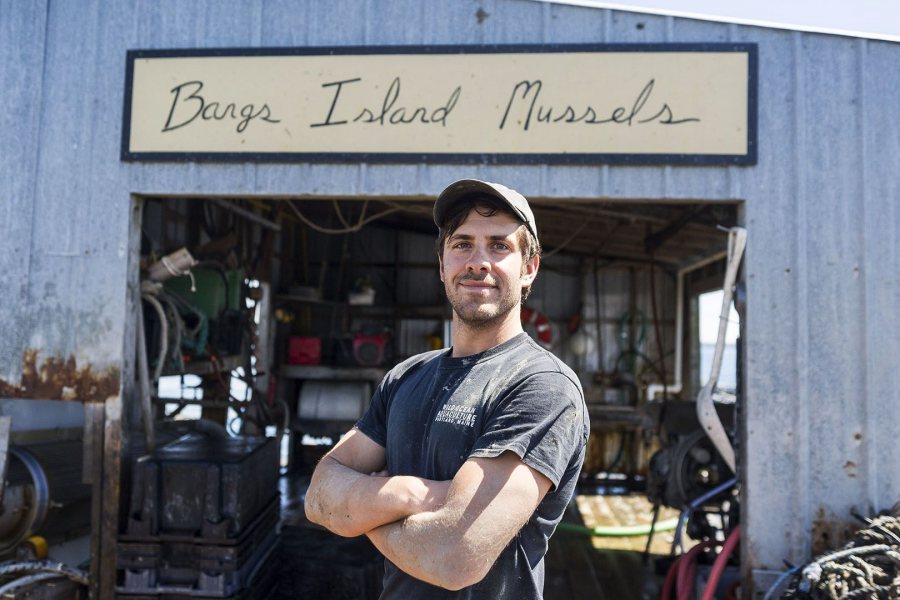
Credit: Bangs Island Mussels
Matt Moretti - Bangs Island Mussels
“Aquaculture is the last frontier in food. Most food production systems are thousands of years old. Marine aquaculture, on the other hand, is relatively young but has the potential to create nutrients in new and sustainable ways. We began farming shellfish and seaweed at Bangs Island because we realized that we can grow delicious food without harming the environment. We wouldn’t have it any other way.”
Matthew Moretti is the president and co-owner of Bangs Island Mussels and Wild Ocean Aquaculture (WOA). He grew up in Maine, where he had various ocean related jobs including lobster fishing, sailing, oyster farming, and oceanographic research. Moretti earned a master’s degree in marine biology before taking over Bangs Island Mussels with his father in 2010 and co-founding WOA. WOA is a family owned and operated aquaculture company located in Portland, Maine, that grows mussels, kelp, and scallops. Bangs Island Mussels is the largest rope-grown mussel farm on the U.S. east coast.
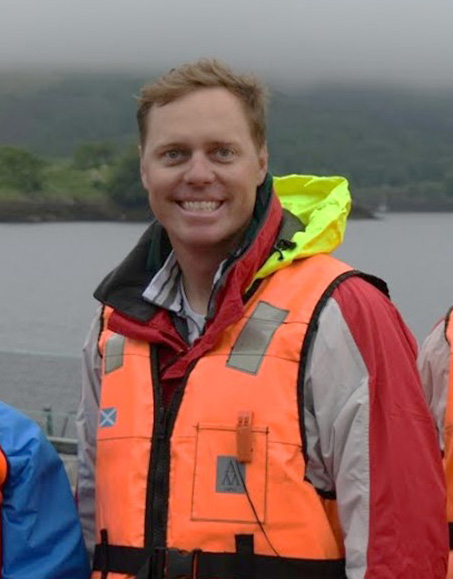
James Morris - NOAA National Ocean Service
“The U.S. has the scientific knowledge and tools to site farms in areas where they can provide maximum economic and nutrition benefits while still conserving healthy ocean ecosystems and avoiding conflicts with other uses.”
Dr. James A. Morris, Jr. is a marine ecologist with NOAA’s National Ocean Service, National Centers for Coastal Ocean Science, where his research focuses on aquaculture environmental interactions, siting, and sustainability. Dr. Morris founded the Coastal Aquaculture Siting and Sustainability research program that consists of multidisciplinary scientists who develop tools and provide services for coastal managers. His team is presently leading more than fifty research projects around the U.S. focused on spatial planning for offshore finfish aquaculture, development of environmental models to simulating the fate of aquaculture effluents, and various assessments of specific environmental interactions such as impacts on protected species and sensitive habitats. Dr. Morris has cultured dozens of species of marine fish and shellfish for both laboratory experiments and seafood production and has decades of experience in commercial fishing and aquaculture industries. Dr. Morris is also an adjunct assistant professor at both Duke University and North Carolina State University, where he is actively engaged in teaching and student advising from undergraduate to Ph.D. levels.
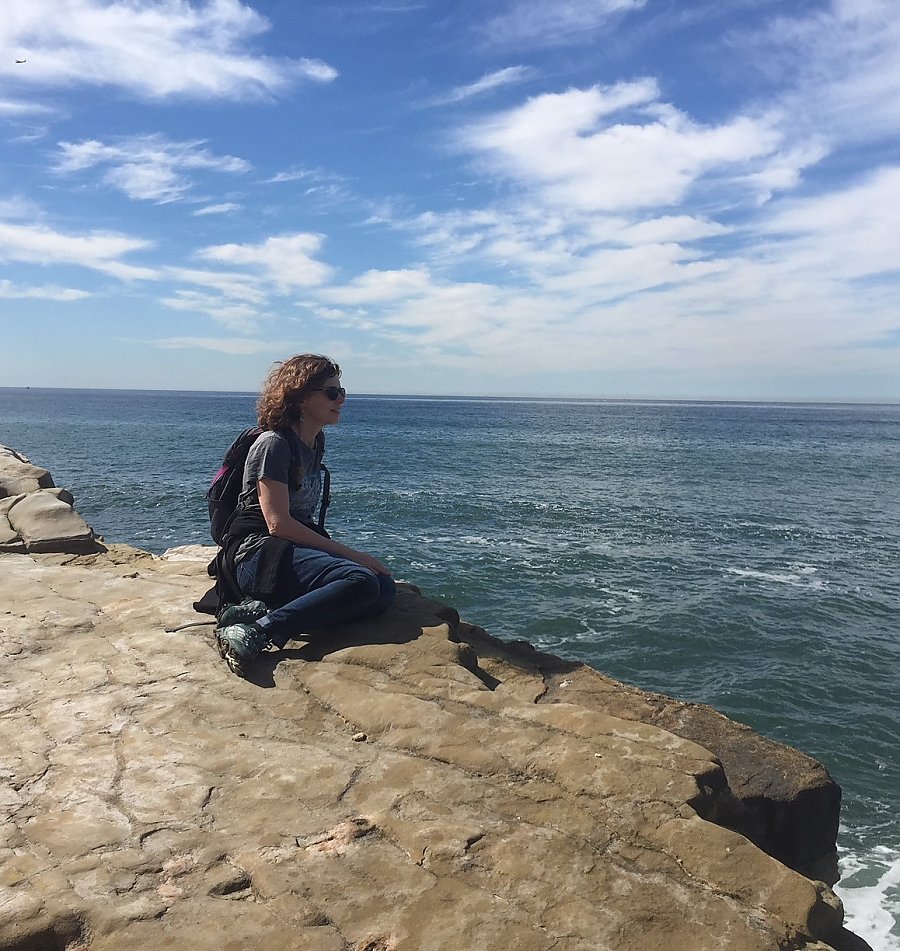
Credit: Sarah Newkirk
Sarah Newkirk – The Nature Conservancy
“What one thing can we do to stabilize our shores, clean our water, provide habitat for diverse organisms, and enjoy as a delicious appetizer? Grow oysters, that’s what! In addition, since shellfish rely on good water quality, the shellfish farms are an economic indicator of environmental health and many of our shellfish farmers are engaged and effective business and community advocates for healthy watersheds, water quality and climate adaptation policies.”
Sarah Newkirk is the senior coastal program director at The Nature Conservancy in California (TNC-CA). She develops and implements TNC-CA’s statewide coastal conservation strategies, protecting and restoring coastal ecosystems, promoting coastal resilience to sea level rise, and abating land-based threats to ocean ecosystems. Newkirk joined the California chapter in 2010 after five years as the coastal project director for TNC’s Long Island Chapter. She pioneered TNC’s coastal resilience approach to multi-objective planning for sea level rise and coastal hazards and served as a member of New York State’s Sea Level Rise Task Force. Newkirk earned a master’s degree in marine environmental science from the State University of New York at Stony Brook and a J.D. from Pace University School of Law. She served as law clerk to the Hon. Thomas P. Griesa, U.S.D.J., in the Southern District of New York. Newkirk has worked as a staff member or consultant for environmental nongovernmental organizations on water quality and land use issues in California and New York for seventeen years.
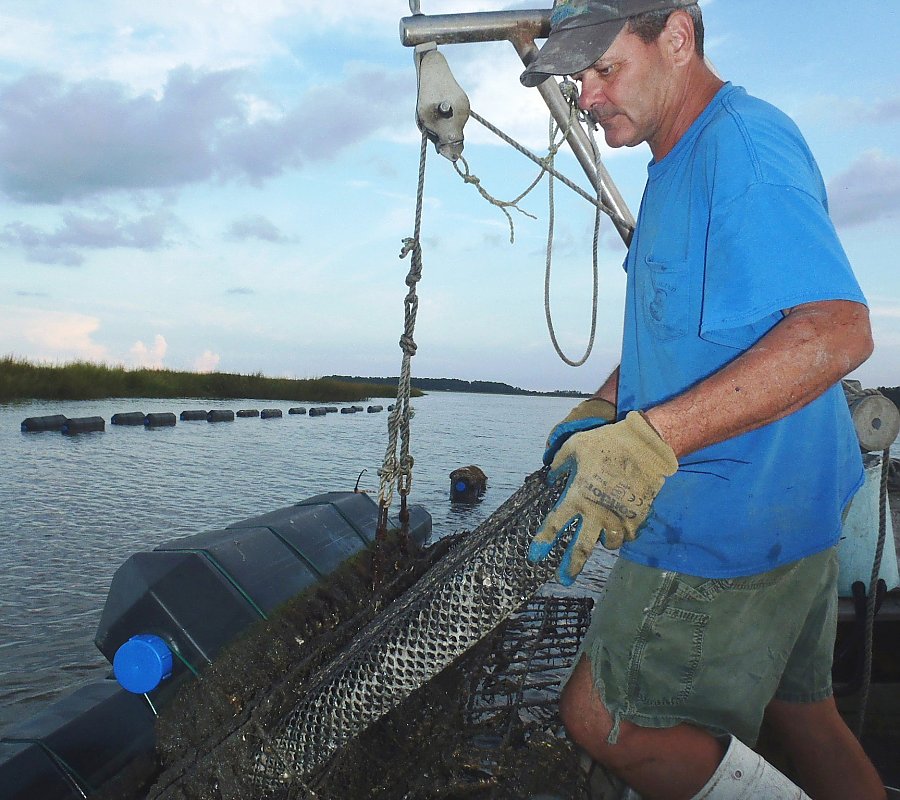
Frank Roberts - Lady’s Island Oyster Inc.
“Oyster aquaculture will ensure that our cultural traditions tied to oysters stay alive for years to come. Aquaculture techniques and technologies being employed today are relieving pressure from wild resources, allowing them to rebuild. Shellfish aquaculture in particular, nurtures the environment and is a tool for both conservation and economic development.”
Frank Roberts is the owner of Lady’s Island Oyster in Beaufort, South Carolina. He uses off-bottom methods, such as tiered trays and floating OysterGro gear, to produce oysters destined for restaurants in the Charleston, Beaufort, and Hilton Head areas. In 2014 Roberts started his own hatchery to have access to a reliable supply of seed for his business and to help the South Carolina industry out of infancy. There are now sixteen growers in the state supported by Lady’s Island Oyster’s efforts. Roberts’ interest in oysters began as a boy on his grandparents farm in Maryland. His curiosity drove him to learn more about aquaculture while working as a police officer, and upon retirement he turned to his passion for aquaculture full time. Roberts is active in education, advocacy, and congressional outreach. He serves as the president of the South Carolina Shellfish Growers Association and participates in the East Coast Shellfish Growers Association’s annual Walk the Hill.
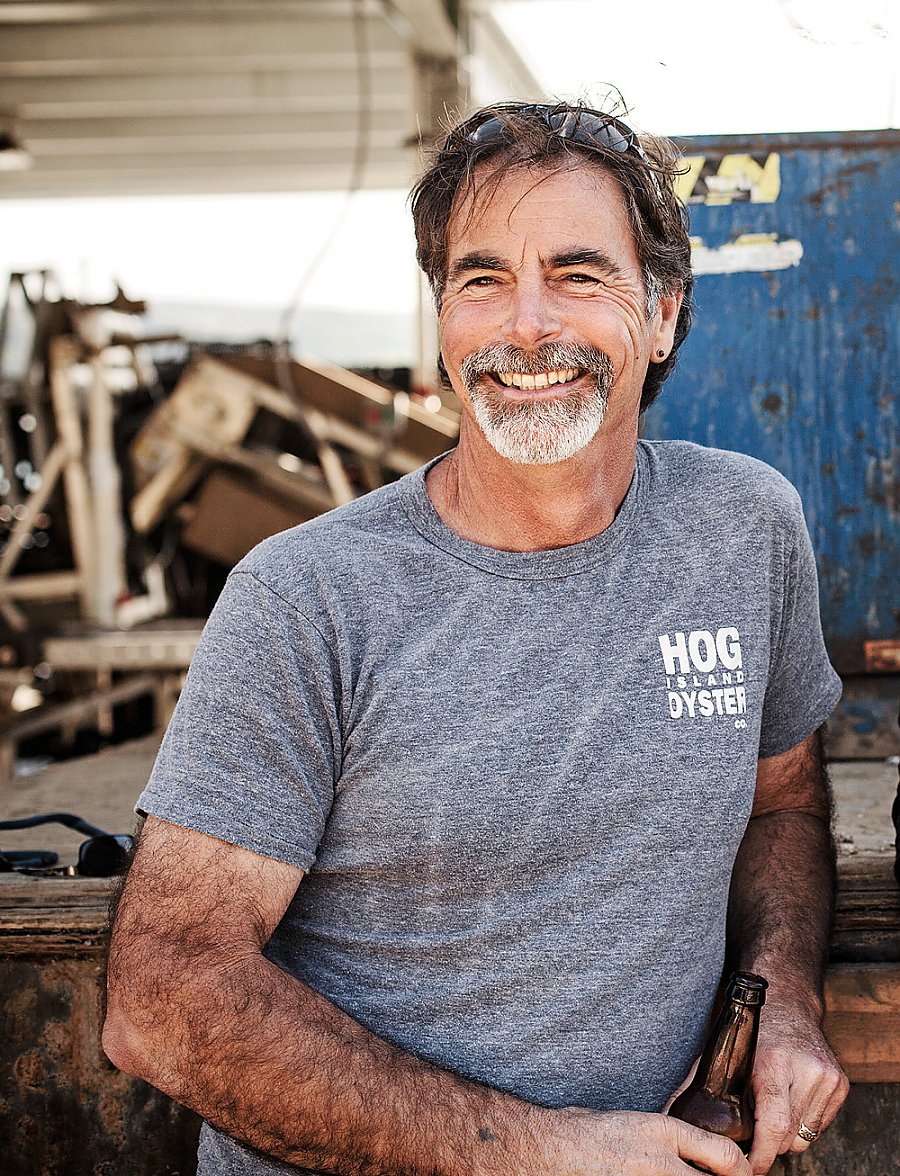
Terry Sawyer - Hog Island Oyster Company
Terry Sawyer grew up swimming, snorkeling, and exploring the banks of the Indian River Estuary on Florida’s Atlantic Coast. Summers spent working at the Harbor Branch Gulf Stream Research Facility in nearby Fort Pierce gave him opportunities to explore his interests in research, growing food, and farming the water. Sawyer has focused his career on aquaculture policy development, working with regulatory agencies and multiple partners to help ensure the long-term health of shellfish and the Tomales Bay watershed. He is actively leading Hog Island Oyster Co.’s involvement in ocean acidification research with the University of California, Davis’ Bodega Bay Marine Labs, CCAN, and other ocean conservation groups.
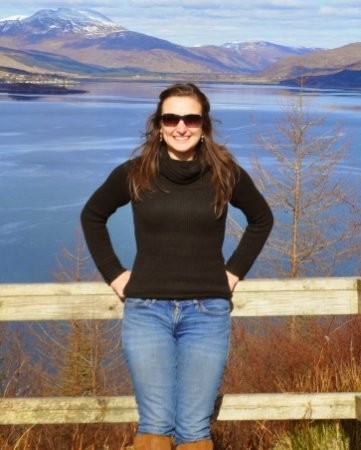
Briana “Bri” Warner - Ocean Approved
“On the coast of Maine, our economy is reliant on one single species: the lobster. With changing water temperatures, the industry is becoming increasingly unpredictable. Shellfish and seaweed aquaculture provides opportunities for fishing communities and their families to diversify their income streams and continue to make a living on the water. We also now know that seaweed aquaculture improves water quality. In essence, seaweed aquaculture is good for our ocean and good for our coastal economy.”
Briana Warner is the chief executive officer at Ocean Approved, a grower of line-grown sea vegetable food products. Her company is focused on sourcing product from fishermen looking to diversify their income stream by starting ocean farms and growing kelp. Prior to joining Ocean Approved in 2018, Warner was the economic development director at the Island Institute, a non-profit that works to sustain Maine’s island and coastal communities. Previously, Warner founded and sold a wholesale bakery based in Portland, Maine, that employed newly resettled refugees. Warner also served as a diplomat with the U.S. Department of State, serving in Guinea, Libya, and the U.S. Mission to the European Union.
